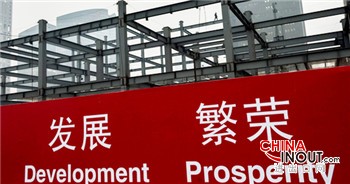当中国宣布将在亚洲发起设立一家全新的地区开发银行时,实话说,当时的全球舆论对此是有分歧的。
在危言耸听的悲观论者——其中许多来自美国政府和国会——看来,创立亚洲基础设施投资银行(AIIB,简称亚投行)是北京方面攫取权力之举。美国官员抱怨,亚投行相当于经济领域的中国海军——这支海军正在南中国海耀武扬威。以英国为首的其他西方国家政府决定加入亚投行、使北京影响力得到提升的举动也让这些官员感到困惑。
乐观派则认为,亚投行代表着中国向公开透明迈进了一步。长期以来,中国一直在将其庞大的外汇储备资金贷给一些开发项目,这类单边贷款活动缺乏透明度。此外,成员广泛、包括57个创始国政府的亚投行,或许可以在美国主导的、僵化的世界银行(Word Bank)之外提供一个受欢迎的选择。
亚投行候任行长金立群在接受英国《金融时报》采访时发表的言论,可以为双方的观点都提供一些支持。
金立群淡化了欧洲国家对亚投行治理的影响,称在英国及其他发达国家政府决定加入之时,亚投行的协议条款已基本拟定,这种说法或许令人担忧。较为可喜的是,他也承诺亚投行的放贷活动将遵守严格的环境和社会标准,并且将比世行更快捷、更灵活。
对其他各国政府而言,如果他们被当作遮羞布加以利用,以遮掩旨在推进中国利益的贷款活动,那么他们应该不会继续留在亚投行理事会。简化官僚做派并不等于消灭透明度。非政府组织的活动人士——不论在富裕国家还是新兴国家——尽管有时观点尖锐而片面,但他们通过监督发展机构的活动,能够促使这类机构保持诚实公正的作风。如果中国希望通过邀请其他国家加入而使其贷款活动具有合法性,就应接受这些国家带来的透明度标准。
然而,如果亚投行能够做到将高放贷标准与快捷放贷结合起来,它将成为其他机构(尤其是世行)进行改革时的有益榜样。
虽然世行几十年来树立起了作为专家意见中心的声誉,其放贷活动却也滋生了严重的官僚作风。金立群准确无误地指出了世行的一处弊端,他认为这是亚投行要避免的:常设的执行理事会频繁开会,有时一周开好几次,并且事无巨细地管理该行的活动。推动众多决策通过被繁文缛节包围的狭窄通道的需要,经常阻碍世行对各种挑战做出快速反应。给管理层更多自由,将理事会的角色限定于制定战略和行使监督职能,应该有助于打造一个责任明确、有效率的机构。
目前来看,亚投行更像是一项试点工程,而非羽翼丰满可替代世行的机构。由于这家新机构将需要若干年时间来提高其放贷能力,最初它可能带来的只是一种竞争性的新治理模式,而非数量更大的贷款。
不过,这本身就可以服务于一个有价值的目的。亚投行通过承诺将放贷速度与高标准结合起来,在初始阶段就发出了令人鼓舞的信息。其股东国政府有机会去树立新标准和好榜样。(中国进出口网)

It is fair to say that global opinion was somewhat divided when China announced it was creating a brand new regional development bank in Asia.
For the gloom-mongers, many of whom reside in the US administration and Congress, the creation of the new Asian Infrastructure Investment Bank represents a power-grab by Beijing. It is, US officials mutter, the economic counterpart to the Chinese navy throwing its weight around in the South China Sea, and they are baffled that other western governments, led by the UK, have decided to bolster Beijing’s influence by joining it.
For optimistic souls, the AIIB represents a move towards transparency by China, which has long lent out its vast foreign exchange reserves for development projects unilaterally and without transparency. With a wide membership, including 57 founding governments, the institution may also provide a welcome alternative to the sclerotic and US-dominated World Bank.
Remarks in an interview with the Financial Times from the AIIB’s new head, Jin Liqun, will give some ammunition to both sides.
Perhaps worryingly, Mr Jin played down the impact of European influence on the institution’s governance, saying that by the time the UK and other developed economy governments had decided to join, the bank’s articles of agreement had more or less been written. More optimistically, he also pledged that the bank’s lending would adhere to tough environmental and social standards, while being faster and more nimble than the World Bank.
Other governments should not remain on the AIIB’s board if they are being used as a figleaf to cover lending made to further Chinese interests. Streamlining bureaucracy is not the same as eliminating transparency. Shrill and one-sided though their views sometimes are, campaigners in non-governmental organisations in both rich and emerging countries have helped to keep development institutions honest by scrutinising their activities. If China wants legitimacy for its lending by inviting in other countries, it should accept the norms of transparency that they bring with them.
Yet if the AIIB can manage to combine high lending standards with moving money quickly out of the door, it will serve as a useful model for how other organisations, notably the World Bank, might reform.
Although the World Bank has established a reputation as a centre of expertise over the decades, its lending operations have gathered an accretion of bureaucracy. One weakness in particular has correctly been identified by Mr Jin as a mistake to avoid in the AIIB — a resident executive board that meets frequently, sometimes several times a week, and micromanages the bank’s activities. The need to push so many decisions through a narrow gap snarled with red tape has often prevented the World Bank from reacting quickly to challenges. More freedom for management, with the board’s role limited to setting strategy and exercising an oversight function, should be able to combine accountability with efficiency.
For the moment, the AIIB is more of a pilot project rather than a full-blown alternative to the World Bank. Since the new institution will take several years to ramp up its lending capacity, it is initially likely to provide a rival model of governance rather than offering a greater volume of disbursement.
That by itself, however, could serve a valuable purpose. The AIIB has made some encouraging noises early on with its commitments to combining lending speed with high standards. Its shareholder governments have the chance to set a new standard and a good example.











